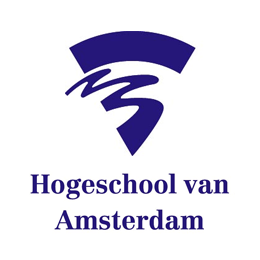Systematic literature review on digital transformation skills
DOCUMENT

The importance of leadership is increasingly recognized in relation to digital transformation. Therefore, middle management and top management must have the competencies required to lead such a transformation. The purpose of this paper is to investigate the relationship between the digital leader competencies as set out by the European e-competence framework (e-CF) and the digital transformation of organizations. Also, the relationship between digital leadership competency (DLC) and IT capability is examined. An empirical investigation is presented based on a sample of 433 respondents, analyzed using PLS-SEM. The results strongly support our hypotheses. DLC has a strong impact on organizational digital transformation. A post-hoc analysis showed this is predominantly the case for the e-CF competencies of business plan development, architecture design, and innovating while business change management and governance do not seem to affect organizational digital transformation. This is the first empirical study to conceptualize, operationalize and validate the concept of DLC, based on the e-competence framework, and its impact on digital transformation. These findings have significant implications for researchers and practitioners working on the transformation toward a digital organization.
MULTIFILE

Background Digital transformation (DT) involves integrating digital technologies into organizations to improve productivity, efficiency, and quality. Investing in the workforce’s skillsets is essential for successful DT. However, it remains unclear which skillsets are essential. Objectives This study aims to identify and define the essential skillsets needed for exploiting the full potential of DT, and to consolidate the identified skills into a comprehensive framework of DT skills. Method A systematic literature review was conducted using the PRISMA approach for selecting studies. This led to the selection of 36 articles that were examined using thematic analysis for identifying and consolidating skills into a framework. Results The Digital Transformation Skills Framework (DTSF) was developed, which contains six overarching skillsets and 44 underlying skills. The framework covers key skillsets in the areas of digital work, entrepreneurship, evidence-based work, collaboration, communication, and adaptation. Conclusion and discussion The DTSF offers a comprehensive understanding of essential skills for today’s evolving organizations, addressing a critical gap in existing literature. It is valuable for organizations and HR professionals, serving as a foundation for re- and upskilling initiatives. Ongoing research should expand the framework to include domain-specific DT skills and emerging digital technologies.
DOCUMENT
The primary objective of the project is to identify policies for the transformation of the Norwegian tourism sector to become resilient to climate change and carbon risks; to maintain and develop its economic benefits; and to significantly reduce its emissions-intensity per unit of economic output. Collaborative partnersStiftinga Vestlandforsking, Stiftelsen Handelshoyskolen, Stat Sentralbyra, Norges Handelshoyskole, Stiftelsen Nordlandsforskning, Fjord Norge, Hurtigruten, Neroyfjorden Verdsarvpark, Uni Waterloo, Uni Queensland, Desinasjon Voss, Stift Geirangerfjorden Verdsarv, Hogskulen Pa Vestlandet.
Digital transformation has been recognized for its potential to contribute to sustainability goals. It requires companies to develop their Data Analytic Capability (DAC), defined as their ability to collect, manage and analyze data effectively. Despite the governmental efforts to promote digitalization, there seems to be a knowledge gap on how to proceed, with 37% of Dutch SMEs reporting a lack of knowledge, and 33% reporting a lack of support in developing DAC. Participants in the interviews that we organized preparing this proposal indicated a need for guidance on how to develop DAC within their organization given their unique context (e.g. age and experience of the workforce, presence of legacy systems, high daily workload, lack of knowledge of digitalization). While a lot of attention has been given to the technological aspects of DAC, the people, process, and organizational culture aspects are as important, requiring a comprehensive approach and thus a bundling of knowledge from different expertise. Therefore, the objective of this KIEM proposal is to identify organizational enablers and inhibitors of DAC through a series of interviews and case studies, and use these to formulate a preliminary roadmap to DAC. From a structure perspective, the objective of the KIEM proposal will be to explore and solidify the partnership between Breda University of Applied Sciences (BUas), Avans University of Applied Sciences (Avans), Logistics Community Brabant (LCB), van Berkel Logistics BV, Smink Group BV, and iValueImprovement BV. This partnership will be used to develop the preliminary roadmap and pre-test it using action methodology. The action research protocol and preliminary roadmap thereby developed in this KIEM project will form the basis for a subsequent RAAK proposal.
Digital transformation has been recognized for its potential to contribute to sustainability goals. It requires companies to develop their Data Analytic Capability (DAC), defined as their ability to manage and analyze data effectively. Despite the governmental efforts to promote digitalization, there seems to be a knowledge gap on how to proceed, with 37% of Dutch SMEs reporting a lack of knowledge, and 33% reporting a lack of support in developing DAC. While extensive attention has been given to the technological aspects of DAC, the people, process, and organizational culture aspects are as important, requiring a comprehensive approach and thus a bundling of knowledge from different expertise. Therefore, the objective of this KIEM proposal is to identify organizational enablers and inhibitors of DAC through a series of interviews and case studies, and use these to formulate a preliminary roadmap to DAC.
Centre of Expertise, part of Hogeschool van Amsterdam

Lectorate, part of NHL Stenden Hogeschool
Centre of Expertise, part of Hanze